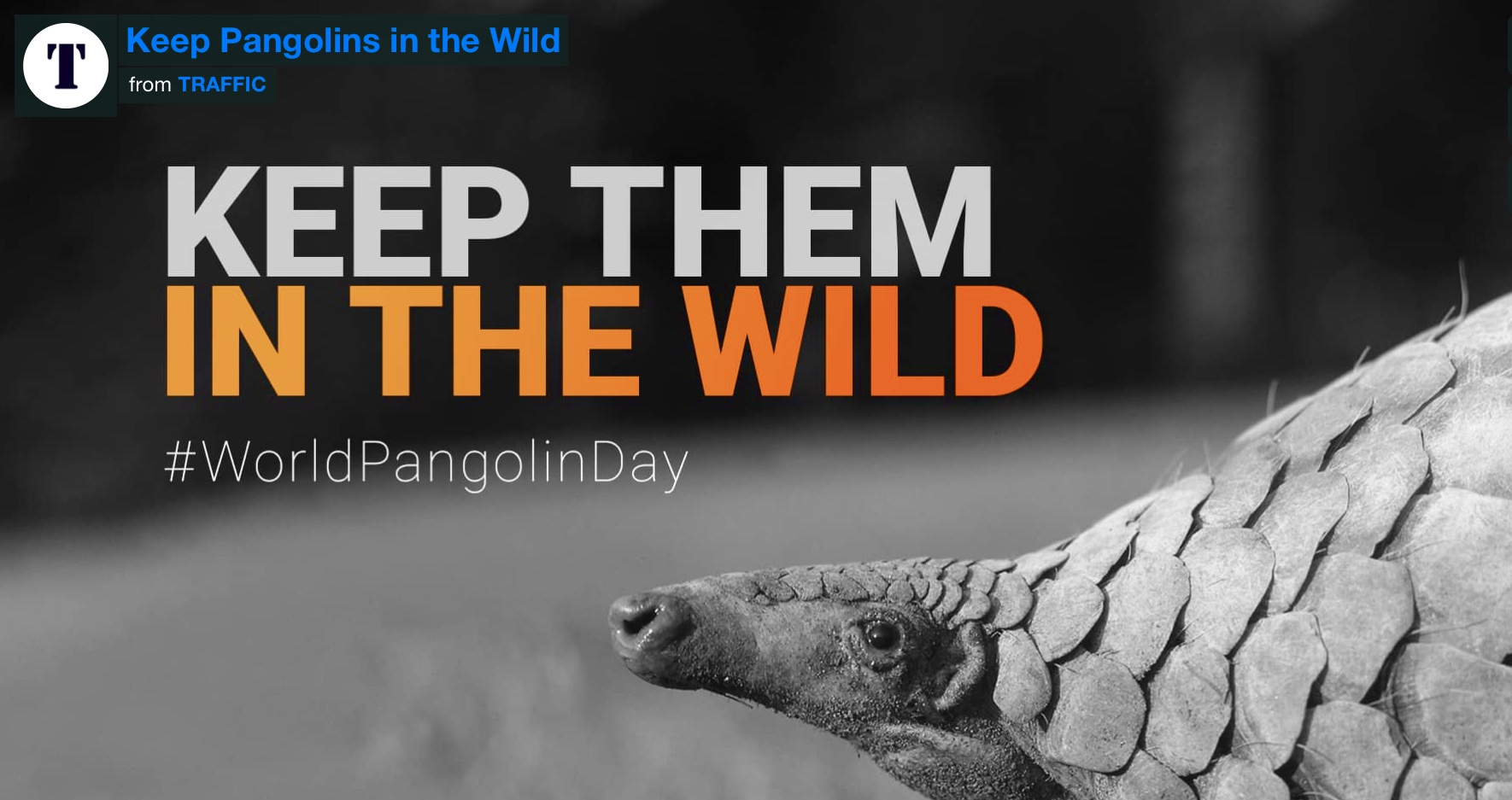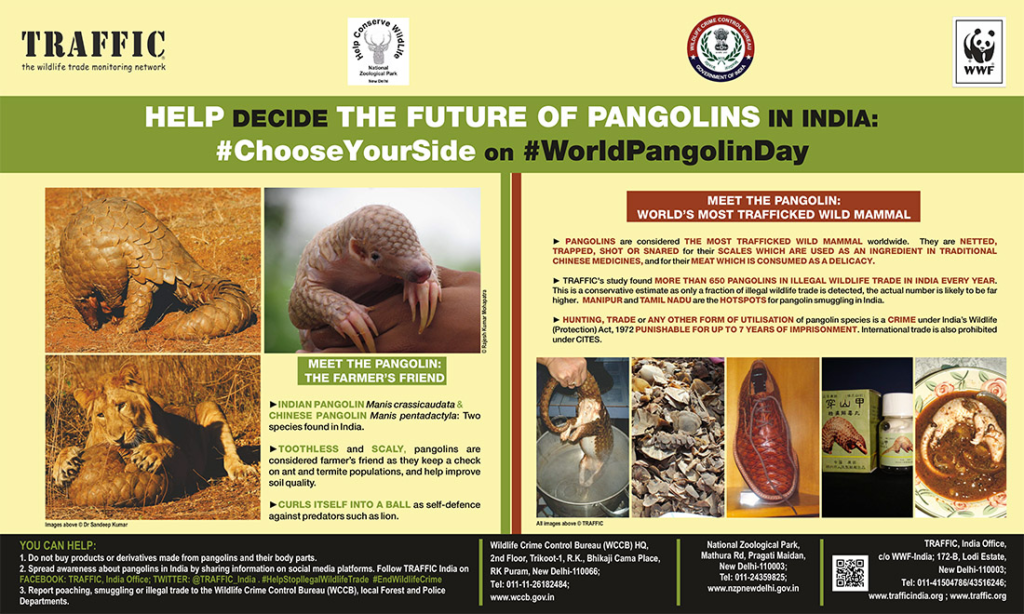- BY tictac
- POSTED IN Blog
- WITH 0 COMMENTS
- PERMALINK
- STANDARD POST TYPE

16th February 2019, World Pangolin Day—Until recently, pangolins or “scaly anteaters” were an obscure mammal few people had ever heard of. But now, seven years after the inaugural World Pangolin Day in 2012, they’ve been catapulted into the public eye—although for the wrong reasons. Hundreds of thousands of pangolins have been poached and all eight species are threatened with extinction in the wild, giving the animals the unenviable reputation of the world’s most trafficked mammal.
Pangolins are shy and secretive nocturnal creatures that live on ants and termites. Their defence mechanism is quickly to curl into a ball when threatened—which is where their name originates, “penggulung”, meaning “roller” in Malay.
What sets pangolins aside from other mammals, and also the reason behind them being a top target for poachers and traffickers, is that their bodies are covered in hard scales of keratin—the same substance that makes up human fingernails.
Within some Asian and African cultures, pangolin scales are perceived to have medicinal value and they are consumed as a remedy for a variety of conditions including asthma and trouble breast feeding. Pangolin meat is also considered a delicacy within certain circles, with its consumption seen as a display of wealth or social status.
To satisfy high demand from Asian markets, an estimated 20 tonnes of pangolins and their parts, equivalent to tens of thousands of individual animals, are illegally traded each year. A recent TRAFFIC report revealed 27 new smuggling routes are used by pangolin traffickers annually and at least 120 tonnes of whole pangolins, parts, and scales were confiscated by law enforcement in just five years.
The vast majority of pangolins consumed in Asia are poached from Africa and all eight species are listed in Appendix I of CITES, prohibiting international trade.
As alarming as these findings are, the true volume of pangolin trafficking is likely to be far higher, and there have already been some significant pangolin seizures in 2019.
There is hope for wild pangolins, but there is no denying the scale of the poaching crisis. Collaboration between countries, NGOs, and enforcement networks is essential if we are to see a brighter future for threatened pangolins in time for World Pangolin Day 2020.
Source-(TRAFFIC)


